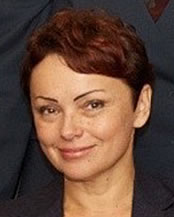 As in other countries Ukraine has persistent ageing stereotypes, with old age associated with wealth reduction, financial instability and social exclusion. To shift these negative attitudes requires systematic challenge. However, is Ukrainian society ready to change? Let’s examine the evidence.
As in other countries Ukraine has persistent ageing stereotypes, with old age associated with wealth reduction, financial instability and social exclusion. To shift these negative attitudes requires systematic challenge. However, is Ukrainian society ready to change? Let’s examine the evidence.
On the public web-platform - “Community practices of local government” - there are opportunities to involve all generations in shaping future educational and social systems. Although many older people have responded, many are unaware of engagement with the “third age” or have expressed skepticism about the feasibility of creating a culture of active ageing. However in Melitopol City a “University of the Third Age” (U3A) has been set up and every year 45 older people ‘graduate’. The curriculum is taught by teacher-volunteers with topics such as, health and wellbeing, culture, psychology, art and computer literacy. These are common interests of the “third age”, helping older people continue to be effective members of society. This learning also generates optimism and improves self-perception as active citizens. People receiving pensions of 1,670 UAH are offered support to join these classes subsidised by the taxpayer. Also, since 2013 in Vinnitsa and Odessa a programme called “Philosophy of Heart” has created its unique version of a U3A. It is developing lifelong non-formal learning among retired people, with more than 1,000 receiving lessons in computer use. As the large-scale transformation of the world continues, human capital becomes more important for intellectual, economic, social and spiritual progress of society and the individual, regardless of age.
What role has the state and community in creating a new culture of later life?
Traditionally, care of older people in this part of the world took a charitable and philanthropic form, mainly by family, and then the community. The culture of old age came under the umbrella of social protection, from simple charitable activities in the 10th/11th centuries, public guardianship in the 16th/17th centuries, public care in the 18th century, to a collective system between 1917 – 1991, and finally the formation of a system of social protection in modern Ukraine since 1992. The sociologist Habermas wrote that social policy eliminates inequality and extreme manifestations of insecurity, and developing systems of social protection is a manifestation of democracy. Following this philosophy, in 2003 the Law of Ukraine “On Social Services” was adopted. This defined an organisational and legal base for social services to citizens, including social and educational services aimed at creating 'successful ageing’. This new phase of a socially-oriented economy takes account of economic, political, historical and demographic features of the country in a new developmental phase. According to the official statistics, as of January 2015, 300 U3As have been established, involving more than 25,000 students using innovative teaching approaches. Public policy aims at joining the country's leading universities to create comprehensive provision. This will facilitate older adults’ reintegration into active social life and will serve to change perceptions of older people. It will form a new outlook for older people involving active vitality and optimism, confidence in intelligence, and personal and social inclusion.
What more is being done?
With the changed social infrastructure older adults are more likely to pursue lifelong activities and participate in personally and socially meaningful ways, and develop new interests and sources of fulfillment. Donetsk State University of Management (Mariupol City) has become age-friendly with the establishment of a U3A with a comprehensive programme including practical subjects such as consumer rights, pension legislation, inheritance, money management, as well as traditional cultural, art and heath studies. The reform of local government means that other institutions can become involved, creating everything from “conversational cafés” to computer centres. If a significant number of the older population retain or develop this quest for knowledge, the community will be strengthened. In view of the growing ageing population, the increase of experienced “elders” is also the key to a strong platform of rich experience for younger generations. This desire for new knowledge in later life is a special step towards progress, and every step is good for the stable development of the Ukrainian nation and the formation of a new culture of old age.
Web references
- http://www.mlsp.gov.ua/labour/control/uk/publish/article;jsessionid=620A9CE7102BCE8B649C2F6F6BC45583.app1?art_id=171654&cat_id=107177
- http://pedpresa.ua/118907-starity-nemaye-chasu-ponad-300-universytetiv-tretogo-viku-diyut-v-ukrayini.html.
Submitted by Professor Alina Khaletska, Donetsk State University of Management, Mariupol City.
Alina was one of a party of six academics from Ukraine who recently visited the University of Strathclyde, under the aegis of the Tempus Third Age programme, to learn about its thriving daytime programme of classes for older adults.
trace affiliate link | jordan Release Dates
- Log in to post comments













Latest Comments